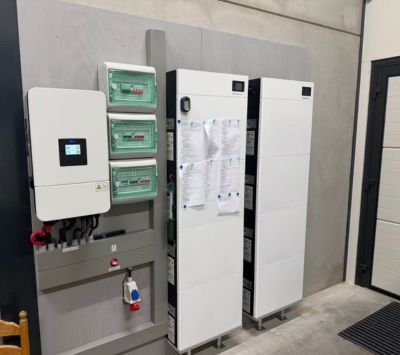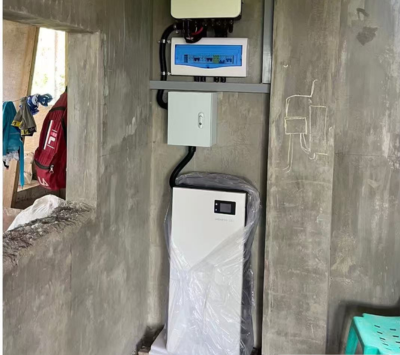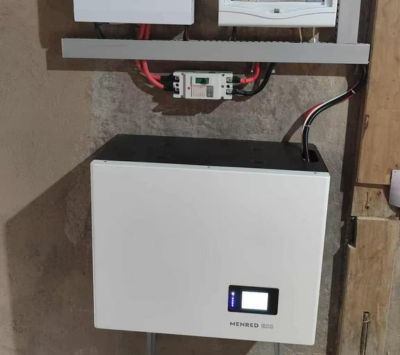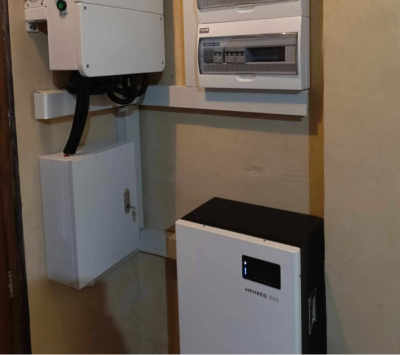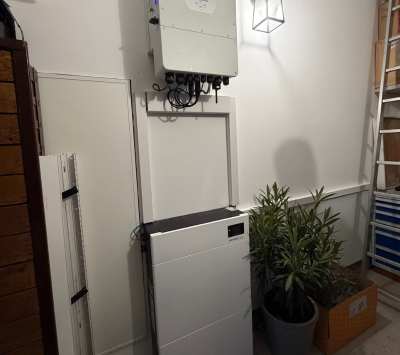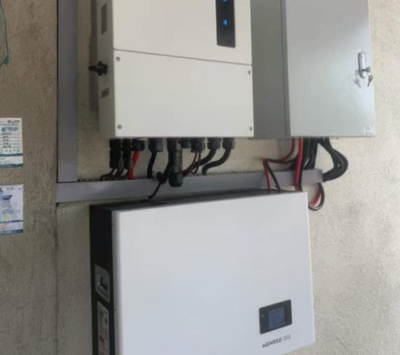After concluding a trip to the ISH exhibition in Germany, on March 18, 2023, Menred Group CEO Chen Linan and Vice President Julie visited their old friend Marc Giraudi at his house in Switzerland.
Marc introduced his house to the group: the house has a total area of approximately 800 square meters and is divided into six apartments, each with an area of approximately 120 square meters, accommodating a total of 24 people. The basement of the house contains a utility room, which is approximately 50 square meters and houses a ground-source heat pump, water tank, ventilation system, residential energy storage system, and water purification system. Marc believes that the biggest highlight of this house is that it does not use coal or gas, with the roof covered in photovoltaic panels and energy supplied solely by clean solar power, resulting in zero pollution. The house also has shared electric vehicle charging stations and washing machines, avoiding unnecessary pollution caused by the purchase of redundant equipment.

In terms of the electricity consumption, Marc mentioned that a house equipped with a solar energy storage system only needs to consider the weather, whether it’s sunny or not. Marc said that supplying home devices with solar energy directly is the most cost-effective option. Using the energy stored in the battery to supply electricity to home appliances would cost about twice as much. If using the national power grid to supply electricity, the consumption would reach three times as much. Marc distributes the electricity from the storage system equally to the six apartments so that when the battery of a certain apartment’s system runs out, it does not affect the electricity usage of other residents. However, if the resident still needs electricity, they will need to pay the electricity in grid’s rate, even though the power is provided by the battery. The energy storage system not only solves the electricity needs of the house, but also generates approximately 8,000 Swiss francs in revenue annually by selling excess energy back to the national grid.
Solar energy storage system has many advantages. Firstly, it allows households to make use of cheaper electricity during off-peak hours when rates are typically lower, reducing their overall energy costs. Secondly, it serves as a backup power source during power outages, ensuring uninterrupted access to electricity. Thirdly, excess energy generated by the solar panels can be sold back to the national grid, enabling households to earn money while also contributing to the overall sustainability of the energy system. Finally, by harnessing clean energy from the sun, households can reduce their carbon footprint and contribute to a more sustainable future for the planet. These features make solar energy storage systems an increasingly popular choice for environmentally conscious consumers seeking a cost-effective and sustainable source of energy for their homes.


